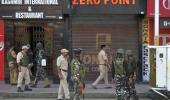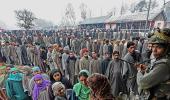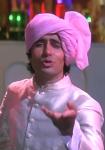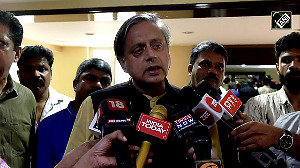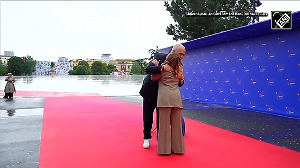Pakistan openly practises terrorism and there is no scope for negotiations until Islamabad reins in its financing and recruitment of militant groups, External Affairs Minister S Jaishankar has said.

Jaishankar was responding to the recent opinion piece written by Pakistan's Prime Minister Imran Khan on Kashmir in the New York Times where he argued that it was urgent to begin discussions while a "nuclear shadow" hovers over South Asia.
In an interview with POLITICO in Brussels, Jaishankar said the idea was a nonstarter while Pakistan "openly practises terrorism".
Noting that he hasn't had time to read Khan's Friday op-ed, the external affairs minister, who was in Brussels last week, said there was no hope of negotiations until Pakistan reins in its financing and recruitment of militant groups.
"Terrorism is not something that is being conducted in dark corners of Pakistan. It's done in broad daylight," he was quoted as saying in the report.
India has not been engaging with Pakistan since an attack on the air force base at Pathankot in January of 2016 by Pakistan-based terrorists, maintaining that talks and terror cannot go together.
Responding to the situation in Kashmir after India ended its special status, the minister said the security restrictions across the Valley would be eased in the "coming days".
He said the internet and telephone outages were needed to stop the activation of "terrorist assets" and to prevent "people who are doing violence to contact each other".
"How do I cut off communications between the terrorists and their masters on the one hand, but keep the internet open for other people? I would be delighted to know," Jaishankar said.
"I would suggest to you that in the coming days you will see an easing up progressively," he said.
This should involve a reduction in the number of extra security forces, he said, adding that he wanted the police sent back to their original duties soon.
"Frankly they have other jobs and other things to do," Jaishankar said.
He also denied that there was a Hindu nationalist agenda in removing Kashmir's special status in order to allow more non-Muslims to buy property there and muscle aside the Muslim majority.
"The kind of people who say this are people who don't know India. Does this sound like the culture of India?" he asked.
Tensions between India and Pakistan spiked after New Delhi on August 5 abrogated provisions of Article 370 of the Constitution to revoke Jammu and Kashmir's special status and bifurcated it into two Union Territories.
Pakistan has been trying to raise the issue at various international fora, but India has maintained that it is an internal matter and has asked Islamabad to accept the reality.
During his visit to Brussels, Jaishankar met president of the European Parliament David Sassoli and European Union foreign policy chief Federica Mogherini, who urged dialogue between India and Pakistan, the report said.
Mogherini "stressed the importance of steps to restore the rights and freedoms of the population in Kashmir," Mogherini's office said in a statement.
